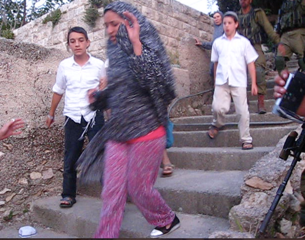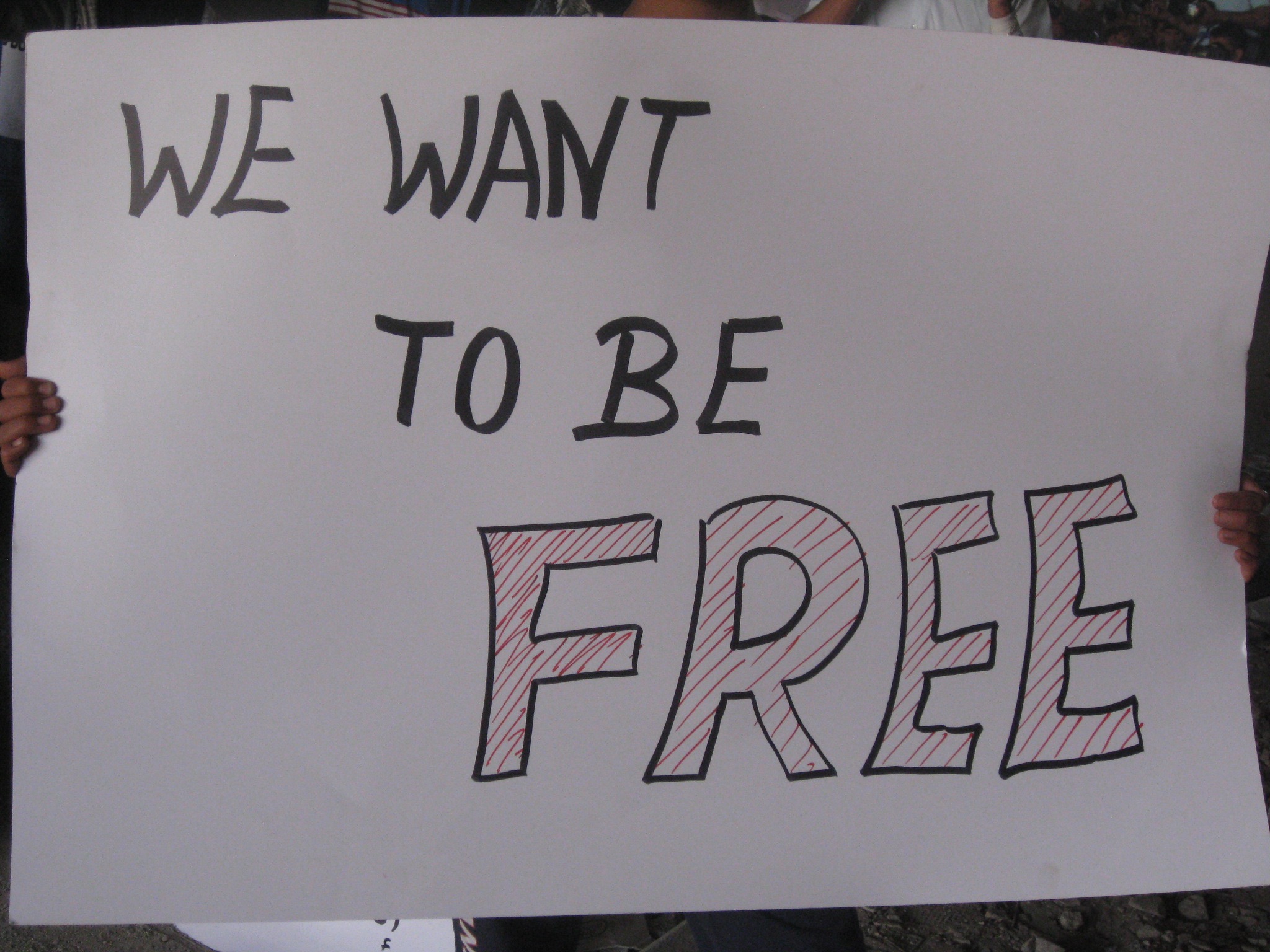Author: ISM Media
-
Palestinian woman and her children attacked by settlers
9th May 2015 | International Solidarity Movement, Al Khalil Team | Al Khalil, Occupied Palestine Yesterday evening in Al Khalil (Hebron), a Palestinian woman and her two small children were attacked by settlers from the illegal settlement as they were on their way to the shops. Marwat Abu Remele lives in Tel Rumeida, an area in Al Khalil under Israeli…
-
Update on urgent call – help Mohammed Abu Rahmah
09th May 2015 | International Solidarity Movement, Ramallah Team | Ramallah, Occupied Palestine UPDATED – On the 20th April, Israeli forces arrested Mohammed Adeeb Abu Rahmah while he was on his way to Mecca. Mohammed is the 19 year old son of prominent Bil’in activists Adeeb Abu Rahmah. Father of nine, Adeeb was sentenced for 18 months…
-
Open the gate, bring down the wall!
08th May 2015 | International Solidarity Movement, Al Khalil Team | Al-Zaim, Occupied Palestine The villagers of Al-Zaim held their third demonstration today in front of the gate in the apartheid wall that separates them from East Jerusalem. Peaceful demonstrators were met by a large number of occupation forces and agreement was eventually reached to…



